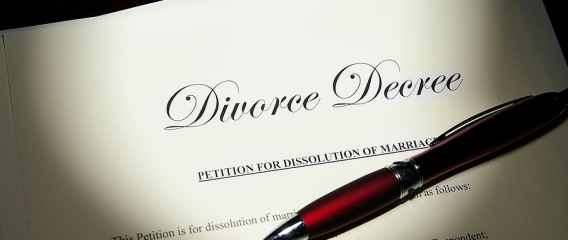The Final Step: Everything You Should Know About Divorce Decrees
Those who are going through the ordeal of obtaining a divorce know firsthand just how slow, protracted, and painful the process can be. In the midst of mediation and meetings with lawyers, it can sometimes be difficult to envision what the end of the road might look like.
For those wondering about what happens at the end of the divorce process, the answer can be found in a divorce decree.
What Is a Divorce Decree?
Obtaining a divorce is often both emotionally and legally complicated. Legally speaking, there are numerous technical terms and concepts that are largely unfamiliar to those who have not attended law school. One of those concepts is the divorce decree.
The best way to explain the significance of the divorce decree is to put it in context with a few of the other documents that must be filed in case of divorce.
When one or more partners want to officially begin the dissolution of their union, they might file a divorce petition. After the divorce petition has been served, the informed party follows by filing a divorce petition response.
These documents begin the process of the divorce, and they go back and forth between parties until either a settlement is agreed upon or a court reaches a decision.
Once the court has reached its decision, it issues a divorce decree. This decree represents the official dissolution of the marriage and spells out the terms of the divorce.
As the divorce decree represents the final decision of the court, both parties must adhere to its terms. Because the divorce decree is the last word in the divorce, it is important to read every word of it carefully and be prepared for what may be included.
What Is Included in a Divorce Decree?
In many ways, the divorce decree is something of a rulebook for divorced life. It dictates things such as:
- Child support payments
- Alimony payments
- Visitation rights
- Restraining orders
- Child custody
Any details that might be included in a divorce settlement are usually cataloged within the divorce decree, which is a legally binding document by which both parties are required to abide.
Violations of a divorce decree can potentially have serious legal and financial repercussions. This is why it is important to work with a trustworthy and experienced lawyer.
Professional legal counsel will help ensure that you are not taken advantage of in the final ruling and that the divorce decree is fair and equitable for all involved.
Do You Need a Divorce Decree in an Amicable Divorce?
In cases known as uncontested divorces, both parties agree to a settlement without necessitating a court-mandated verdict. This does not mean that a divorce decree is unnecessary; in these cases, the parties work together to agree upon what is included in the divorce decree. This keeps the court from dictating the terms of the divorce.
However, if the agreed-upon settlement is deemed unfair, a judge can supersede it. To avoid this happening, both parties should always get sound legal advice. If you or someone you know in the Metro-Detroit area is considering a divorce, call Gucciardo Family Law today.
Too much information?
We focus exclusively on family law matters so we are always available to answer your questions and help.


















Leave a Reply